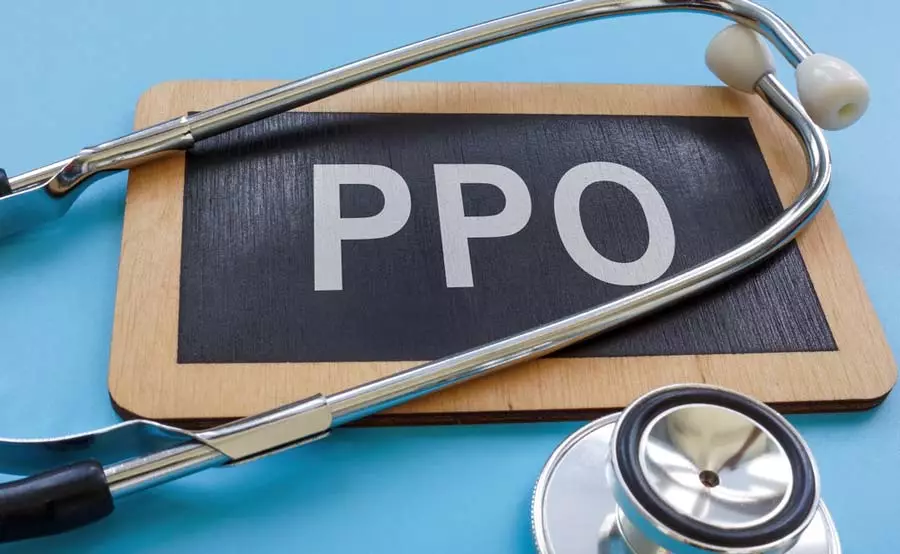Drug Rehab that Accepts Cigna
Call Now To Get On The Road To Recovery.
Addiction Treatment that
Just Works
Individualized treatment programs delivered in a comfortable, relaxed setting promote healing in your recovery journey.
*As required by law, all communications with Resurgence Texas are HIPAA Compliant and 100% Confidential
Cigna Health Insurance Drug Rehab Coverage
Deciding to enter a drug or alcohol addiction treatment program is of the bravest choices you can make. It’s usually difficult for most people to accept they need treatment for their substance abuse issues. Therefore, it can be very discouraging to learn that rehabilitation costs are higher than you can afford. A drug rehab that accepts Cigna can make all the difference!
People seeking addiction treatment must figure out how to pay for the cost of restoring their health and happiness. Top rehab centers accept a wide range of health insurance plans like Cigna to ensure that treatment is available to all.
Drug and alcohol addiction can have devastating effects on you and your loved one’s life. Luckily, we offer various evidence-based treatment options to help you reclaim your life from the jaws of addiction and drug abuse.
Keep reading for professional advice on Cigna addiction treatment programs from the team at Resurgence Texas!
Does Cigna Health Insurance Cover Substance Abuse and Mental Health Treatment?

Yes! Cigna is a “global health services” insurance company that offers insurance to millions of clients globally. Their coverage varies widely based on the specifics of your plan, but most of their policies offer substance abuse coverage. Get in touch with our admissions team immediately if you have Cigna and need assistance with drug or alcohol abuse.
Cigna Drug Rehab
There are various treatment options for mental health and substance use disorders (SUD). There are two primary types of rehabilitation facilities:
Inpatient rehab entails the client living in the facility during treatment. It is the most effective setting for people with severe addictions and co-occurring physical and mental health disorders or dual diagnoses.
Outpatient rehabilitation entails clients attending treatment at a rehab facility at designated times for various forms of therapy, including individual therapy, group therapy, and family therapy sessions. Transitioning from inpatient to outpatient care typically begins with intensive outpatient services. These programs give the client stability and routine while transitioning between care settings.
Cigna insurance offers coverage for addiction treatment services. Call us now to learn more about our inpatient and outpatient treatment programs.
Medical Detox
Medically-supervised detox is often the first step in addiction treatment. Detoxification at an inpatient facility is the best action for anyone experiencing alcohol or drug withdrawal.
Due to the potentially life-threatening nature of withdrawal symptoms, detoxification from substances should not be attempted at home. Addiction specialists medically monitor clients in our inpatient detox programs to ensure a safe and comfortable experience.
Partial Hospitalization Programs (PHP)
A partial hospitalization treatment program is a regimented treatment strategy where clients don’t spend the night in a drug and alcohol rehab center but instead visit the facility at set times during the day. These programs offer access to medical professionals, mental health professionals, therapists, and support groups.
Counseling and Therapy for Substance Abuse Treatment

Those who suffer from mental, mood, or emotional issues can get the help they deserve from mental health counselors and therapists. Many people who suffer from addiction also have mental or mood disorders. The simultaneous diagnosis of a SUD and mental health issue in a single patient is known as a “dual diagnosis.”
People with addiction and those with a dual diagnosis require specialized care. Addiction is the primary focus of addiction counseling. Psychologists and therapists focus on helping clients work through mental and emotional blocks. Finding a counselor or treatment center that works with Cigna insurance is essential at any counseling intensity level.
Addiction Specialists and Referrals for Addiction Treatment
If a physician or psychiatrist mentions addiction treatment as one of their areas of expertise, they are considered an addiction specialist. Addiction specialists can also diagnose individuals and recommend them to appropriate treatment centers and other professionals when necessary.
They have a wealth of information about the addiction cycle and how to provide individualized help to people who need it. Drug and alcohol rehab centers that accept Cigna insurance usually have addiction specialists to help you recover from addiction.
After a patient’s time in treatment is over, their doctors may recommend that they see a different specialist or go to a different clinic. In such cases, a referral recommending that the individual receive this service may be necessary. Patients are usually required to return to the treatment facility for follow-up management, receiving different therapy and care. This is an excellent method of ensuring continual sobriety.
Sober Living
People in addiction recovery programs are often advised to enter a sober living environment after completing inpatient treatment. Sober living facilities are also known as halfway homes. Individuals residing in such homes share their experiences and support with others, working toward the common goal of long-term abstinence. Following rules, random drug testing, and curfews are standard in sober living homes.
These residences offer a framework for continued support following medical intervention. It is a helpful approach to ease into independent life while being held to some degree of social responsibility.
Essential Insurance Terms You Need to Know
Commonly used in the health profession, this jargon is essential for general understanding when reading anything related to health insurance. The following are some essential terms that you’ll encounter.
Deductible
The deductible is the amount you must pay out of pocket before your insurance provider makes payments under the policy. Suppose your Cigna health insurance plan has a deductible of $1,500. You will have to pay the first $1,500 for the service. Once you’ve met your deductible, the amount you’ll owe is often a fixed copayment, and the insurance company will cover the rest.
A yearly doctor’s visit and preventative treatments, like shots and screenings, are some types of care that are often covered without any out-of-pocket expense. But many plans also cover a wide range of other specialized care without further outlay. You can inquire about the deductible when signing up for rehab. This amount varies widely depending on your specific package. Remember that your plan’s deductible may apply not only to you and your family members but depending on the type of plan you have.
Premiums
Insurance premiums are the periodic monthly or annual payments you must make to maintain coverage. Deductibles, copayments, and coinsurance are additional costs you’ll have to pay on top of your monthly premium.
After reading that lower monthly premiums are associated with higher copays and higher monthly premiums are associated with lower copays, many people decide that the lower monthly premium option is the best. Consider paying a higher premium in exchange for a reduced deductible if you have a history of health problems.
Copayment
After meeting your health insurance plan’s deductible, you will be responsible for a predetermined portion of the cost of each covered medical procedure. When you go to the doctor after meeting your deductible, you may only have to pay a small fee out of pocket while your insurance covers the rest. If not, the entire cost of the service will be charged.
The fixed rate varies depending on the service being used. Copayments for psychiatric visits and drug screenings are likely to be different. Copayments are often lower for plans with higher monthly premiums and higher for those with lower premiums.
Out of Pocket Expenses

These are the costs you are responsible for paying out of pocket since they are not covered by insurance. The insurance company will not pay for these, so you will be responsible for paying the entire cost.
Your total out-of-pocket expense will not exceed the maximum allowed by your plan, and insurance usually takes over and pays the rest once you’ve reached that threshold.
Coinsurance
The phrase “coinsurance” refers to a proportion of coverage, the part of a service’s total cost that falls on the patient after the deductible has been met. For example, suppose you have a 15% coinsurance rate for doctor visits, and the appointment costs $100. In this case, you’ll only be responsible for paying $15. But the entire sum will be due if your deductible has not been met.
In-Network Health Care Providers
Medical professionals and hospitals who are “in-network” have already established working relationships with your health insurance provider. There are insurance policies that exclusively pay for services provided by in-network providers, while others will pay for care received either in or outside of the network.
Keeping within the network often reduces out-of-pocket expenses. Discuss this option with your health insurance provider if you want to receive discounted rates from network doctors and hospitals.
Out-of-Network Providers
Doctors and other medical providers, such as rehabilitation centers, that are “out of network” do not have a formalized payment arrangement with your health insurance provider. Services received outside an insurance plan’s network will incur additional costs not covered by that plan. The plan may pay for some expenses incurred because of medical emergencies.
Addiction Treatment that
Just Works
Individualized treatment programs delivered in a comfortable, relaxed setting promote healing in your recovery journey.
Types of Cigna Insurance Policies
Health insurance comes in different types of plans, and the premiums for an individual or family can vary widely depending on the policy chosen. Knowing the differences in the plans will help you choose the one that best suits your health and budgetary requirements.
Health Maintenance Organizations (HMOs)
HMOs are insurance plans that give you access to a pre-established group of doctors and hospitals in your area. Its monthly premiums are less than those of competing plans. These plans allow you to choose your own primary care provider, and your selected physician will recommend you to a specialist if the need arises.
It is essential to note that HMOs do not cover out-of-network expenses unless in case of a medical emergency. You will be responsible for costs incurred for care received from providers outside of your insurance network unless.
Preferred Provider Organization (PPO)

A PPO, or Preferred Provider Organization plan, offers members access to a broader network of healthcare providers. The monthly premiums and deductibles may be greater than with HMOs. This plan is preferable if you value freedom of action in medical matters over cost savings. With a PPO, you can get coverage outside your network, but it will cost you more. Also, you don’t need a referral from your primary care doctor to see a specialist.
If you are comfortable with the doctors you are seeing currently and they happen to be out of network, then a PPO would be a good choice because you can see out-of-network doctors. However, the freedom of choice may come at a higher cost.
A PPO policy may be the best option for that shopping for an insurance plan that addresses drug or alcohol addiction treatment because it provides greater flexibility in selecting a facility. You can visit rehab centers within or outside of your insurance network and in or out of your home state.
Because each patient has unique requirements, a PPO expands the range of facilities from which they can choose the best for their condition. If long-term sobriety is the objective, then a program designed specifically for you is your best bet.
Exclusive Provider Organization (EPO)
With an EPO, you can visit any of the many approved local clinics or hospitals. Your insurance provider will not pay for any of your out-of-pocket expenses. This plan typically makes monthly premiums less expensive, but deductibles are generally greater.
While both HMO and EPO plans necessitate clients to have a primary care physician, this isn’t always the case with EPO coverage. This policy will pay for any necessary out-of-network medical care you get in an emergency. If you already have a primary care physician, they are not required to coordinate your referral to a specialist.
Can You Pay for Drug Rehab without Insurance Coverage?
If your insurance doesn’t pay for drug rehab services, there are other ways to pay for rehab. Many facilities provide payment plans for those who cannot afford the upfront therapy charges. Most rehabs are “non-hardship,” or accommodating of various financial situations. Others offer scholarships to help with payment. You can also consider getting a personal loan or a medical loan to cover your rehab costs.
Some people also turn to loved ones for financial support. They care about your well-being and, if they can, may pay for some of the expenses that your health insurance won’t.
Crowdfunding has evolved into a captivating new tool in our modern world. People will share their stories on social media and other platforms to garner the attention and financial support of a sizable audience who would then donate to their causes.
Cigna Drug Rehab at Resurgence Texas
Drug addiction has severe negative impacts on all aspects of your life, including, mental, emotional, and physical health. The cost of rehab can be costly, but you don’t have to worry. We accept Cigna insurance coverage for drug and alcohol addiction, making rehab services accessible to people from all walks of life.
There are many options for addiction recovery. Here at Resurgence Texas, we tailor our care to each patient’s specific need. Your arrival at our drug and alcohol treatment center marks the beginning of your journey to sobriety. During your time in rehab, you can count on the assistance of our compassionate and committed staff.
If you or a loved one is battling addiction or mental health disorders, call our Admissions team today for more information about addiction treatment and to confidentially verify your insurance!
Addiction Treatment that
Just Works
Individualized treatment programs delivered in a comfortable, relaxed setting promote healing in your recovery journey.
